|
The National Prescription Drug Take Back Day aims to provide a safe, convenient, and responsible means of disposing of prescription drugs, while also educating the general public about the potential for abuse and medications. Why remove unwanted medications?Keeping unused, unwanted and expired medications in your home poses a risk to you, your family and your community. When disposed of improperly, medications can still be obtained for illegal use or can contaminate our waters. For Our Children Prescription drugs, over-the-counter medications and supplements are involved in over half of unintentional child poisoning incidents. Two-thirds of teens who report abuse of prescriptions medicine are getting them from friends, family and acquaintances. Make sure the teens in your life don’t have access to your medicine. For Our Community Prescription drug abuse is a serious and growing problem in our community. Abuse of medicines is increasing rapidly with serious consequences. For Our Waters When residents dispose of medicines in the toilet or sink, these contaminants are passed on to municipal waste water treatment or septic systems. Many pharmaceuticals cannot be effectively removed by these systems Medication Drop Off LocationsSafely dispose of unused prescription and over-the-counter medications 24/7. Brought to you by law enforcement agencies serving Huntsville and Madison County residents. Huntsville Police Department Drop Box accessible 24/7 815 Wheeler Avenue Huntsville, AL 35801 256-722-7100 Madison County Sheriff’s Department Drop Box accessible Monday - Friday 8 a.m. – 4 p.m. 715 Wheeler Avenue Huntsville, AL 35801 256-533-8820 Huntsville: Jaycee Building, 2180 Airport Road (drop off from 9 - 12, Saturday, April 29th) Madison: Madison Police Department, 100 Hughes Road (drop off from 9 - 12, Saturday, April 29th) Law enforcement and volunteers will be present to ensure safe and legal collection. CVS Pharmacy RX Drug Take back locations: Harvest: 5859 Highway 53 Meridianville: 12275 Highway 231-431 North Huntsville: 2210 Winchester Road Pulaski: 700 West College Street Lincoln County Sheriff’s Department 4151 Thorton Taylor Parkway, Fayetteville Jackson County Court House 102 East Laurel Street, Scottsboro Cullman Police Department 601 Second Avenue NE, Cullman To search for a collection site near you, visit: https://www.deadiversion.usdoj.gov/drug_disposal/takeback/index.html Acceptable items:
Unacceptable items:
When turning in your medications, please:
0 Comments
3/21/2017 0 Comments Ignite the Light of HopePlease join us as we introduce our organization and share our mission to provide support to families and members of our community struggling with addiction in their lives. Addiction knows no boundaries and impacts individuals regardless of age, gender, race, income or religion. Help us fight the stigma attached to those that are struggling, comfort those already injured but not destroyed by this disease, and inspire young people to stay drug-free. We want to fight this disease with education, love and compassion, and together we will rise out of the darkness and into a place of light, recovery and peace.
Thank you to our event sponsors: The Reprieve for Men, Opelika; A Reprieve for Women, Tuscaloosa; and FORMLL - Friends of Recovery Morgan, Madison, Limestone and Lawrence counties. For more information about Not One More Alabama or the event Thursday, April 13th, please call (256) 384-5055 or email [email protected]. Not One More Alabama is a 501(c)(3) organization. Do you suspect that your child is abusing alcohol or drugs? Are you worried? Have you noticed some changes that have no explanation? The following are some of the warning signs:
Physical and health signs of drug abuse
Behavioral signs of alcohol or drug abuse
Psychological warning signs of alcohol or drug abuse
Source: National Center on Alcoholism and Drug Dependence, Inc. (NCADD) 3/5/2017 0 Comments 50 Common Mistakes That Parents Make When They Discover Their Kids Are Using DrugsBy Cathy Taughinbaugh 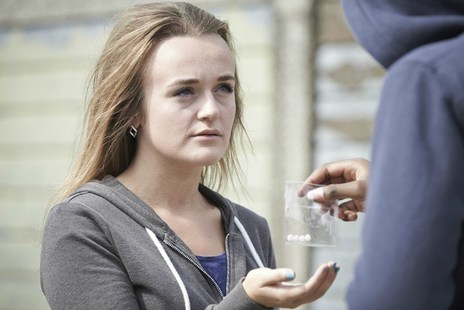 Are you a parent who is struggling because you’ve just discovered your teen or young adult is using drugs or abusing alcohol? To this day, I have a clear vision of finding crystal meth in my daughter’s backpack. With that discovery came the knowledge that I had no clue what to do next. Our journey to recovery as a family has been the hardest, most frightening, painful experience of my life. It has changed my outlook forever and shed much-needed light on my previous judgements of other people’s parenting choices as well as my own decisions. With that said, I would like to share these common mistakes for those of you who are in the midst of coping with your child’s drug or alcohol use. Here is my list of things that many parents, including myself have tried–to no avail. Sometimes you might get lucky and they work, but usually things stay the same or get worse. Tips on what to avoid as a parent: 1.Feeling that your child’s drug use is a teen rite of passage that they will grow out of. 2.Being too busy to know your child’s friends and be involved in their life. 3.Not attending any support meetings because you might meet someone you know there. 4.Having prescription drugs around the house where they can easily be found. 5.Losing confidence in yourself as a parent because your child joined the millions of others experimenting or using drugs. 6.Spending all your time worrying about your child with the drug problem and ignoring the rest of the kids are who are trying to make good choices. 7.Continuing to give your child money, even if it may be spent on drugs. 8.Forgetting that you need to set a good example. 9.Living in denial for days, months, or even years. 10.Continuing to worry constantly about things you can’t control and making yourself miserable. 11.Not exploring all options before deciding what kind of support will help the most. 12.Isolating yourself because of the shame. 13.Not getting help for yourself because you think the only person with a problem is your child. 14.Yelling at your child. 15.Allowing the drug use to upset every aspect of your life. 16.Having your child return to the same environment after only 30 days of treatment. 17.Realizing you need to set boundaries, but not following through on them. 18.Allowing your child to drive the car, even if you suspect drug use. 19.Sending your child off to college with the hope they will get a fresh start and the drug use will stop. 20.Covering up for your child. 21.Feeling guilty for something you didn’t cause. 22.Thinking money alone will somehow solve the problem. 23.Allowing the stress of the situation to come between you and your spouse. 24.Having the “boys will be boys” attitude. 25.Neglecting your own self-care. 26.Thinking 30 days of treatment is enough. 27.Not realizing that some of the arguments you’ve had with your child could have been avoided if you had talked to your child in a more positive way. 28.Never praising or rewarding for what your child does right, because after all, he is using drugs. 29.Consciously or subconsciously rewarding your child when they continue to use drugs. 30.Not allowing your child to take responsibility for the consequences of their use. 31.Not acknowledging your child’s progress in AA or other groups. 32.Allowing underage drinking in your home. 33.Not taking the time to investigate research-based approaches. 34.Lecturing or nagging your child about their use. 35.Forgetting to say “I love you.” 36.Waiting too long to get outside help, because you think you can handle it. 37.Making excuses for your child’s drug use. 38.Not accepting any responsibility for even part of the problem. 39.Blaming yourself for the drug use. 40.Funneling your child into one solution with no options. 41.Not realizing that addiction can be a fatal disease. 42.Never taking the time to really gain a deeper understanding of why your child is using drugs. 43.Thinking, “not my kid.” 44.Believing there is nothing you can do to help. 45.Having a confrontation, rather than a conversation. 46.Not checking for signs of drug use. 47.Neglecting to notice your child’s change of personal habits. 48.Losing hope. 49.Not being there for your child when they are ready to seek recovery. 50.Hoping the drug use will just go away on its own. Resource: http://cathytaughinbaugh.com 2/28/2017 4 Comments My Journey by Sally Barton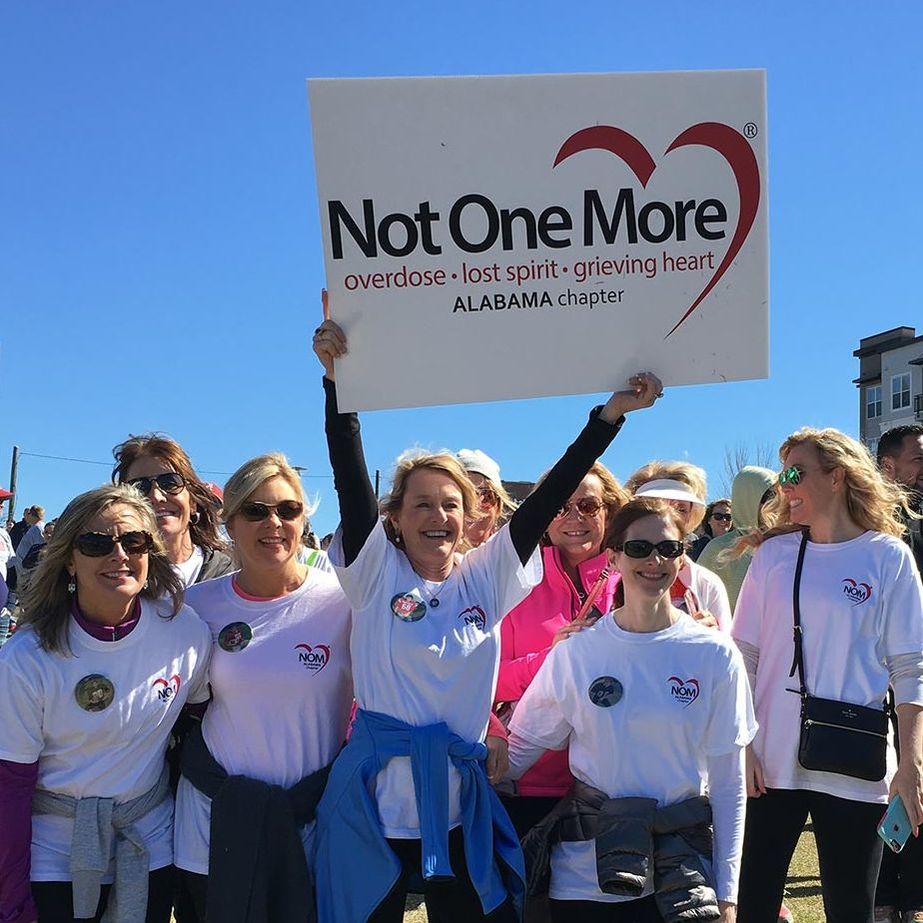 It's Saturday morning, February 25, 2017. I wake up at 6:15 a.m. anxious to get to this walk I'm involved in and scream "JAY?" Tears start flowing down my face and I'm having shortness of breath. Another dream, another reminder that I can't kiss my son, smell my son, hug my son, tell him how much I love him, tell him how proud I am to be his Momma, tell him he has gorgeous blue eyes and Melissa is quite a lucky lady, watch him play with his precious niece Brinkley and little Finn man, watch him play softball, meet him for lunch, find out how his day was, or have him over for our routine Sunday night supper after a round of golf together with his Daddy! We get up, eat breakfast and hurry to the park to meet my friends from NOT ONE MORE ALABAMA and their families. I have a best friend with me from Huntsville, Shawn Bentley and three friends from Atlanta: Deborah, Diane, and Cindy. They are four parts of my rock star friends that are ALWAYS there for me! I see thousands and thousands of people! People with shirts on slamming heroin, signs with pictures of love ones who are gone or who are in therapy, buttons on shirts with an addict’s picture; like the 13 buttons with Jay's picture on them from all of the sports he played. TEARS start flowing again. I meet up with my group and love seeing the matching shirts with NOT ONE MORE ALABAMA on them. We get a group shot and here come the tears again. I personally know what all these people feel like. I hate it, but I can relate to the pain. I know what it’s like to feel that knot in your throat, that fear. The fear that death is coming, that you've done everything you can think of to help your loved one. You're broke, you're tired, you are absolutely longing for a day, just one day when you can feel like that loved one is safe, safe from the devil. To me, fear is this: Feeling Every Addicts Reality! Well, I felt it for over 12 years. The going in and out of recovery, praying that this time he could beat it, going to AL-Anon meetings because I thought I was crazy – are just some of the fears. Jay Barton, my precious son, my only son was born on May 19, 1984. He died on July 5, 2016 at 3:15 a.m. in the morning with a needle in his left arm and his chip in his right hand. That needle was NOT heroin. It was mixed. This Birmingham walk was a blessing to me. Knowing that there are thousands of people out there that you can turn to for help with recovery, addiction, love and support is a very heartwarming feeling to me. It's a feeling that I have longed for since July 5, 2016. I'm a Momma who cares, who is not ashamed, who feels a calling to help others get through this fear, this nightmare, this train wreck. Not One More Alabama is a way for us to fight! God set my son free! Free from the devil! God also set me free, Free from FEAR! I do not feel alone anymore. The only way to fight the devil is to LOVE! The Birmingham walk was a whole lot of Love! Not One More Alabama is a whole lot of LOVE! That walk was a day where God made the sky a gorgeous blue color just like my son Jay's eyes. God is up there smiling at all of us because he knows we care together and together we can fight this evil heroin epidemic with LOVE. A quote from the Bible that always catches my attention is from Romans 5: 2-5: Suffering produces perseverance Perseverance brings character Character brings Hope And Hope does not put us to shame, because God's love has poured into our hearts through the holy spirit who has been given to us. I will spend the rest of my life helping to fight this disease because I have God on my side. ALL MY LOVE, Sally Barton |
Not One More - AlabamaA group of people damaged but not destroyed by addiction. We are fighting this battle together. Archives
September 2021
Categories |
Email Us at [email protected]
Or leave a message at: 256-384-5055
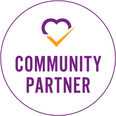
Not One More Alabama is proud to be a Community Partner with The Partnership to End Addiction , an organization that provides personalized support and resources to families impacted by addiction, while mobilizing policymakers, researchers and health care professionals to more effectively address addiction systemically on a national scale.
Not One More Alabama is a not-for-profit 501(c)(3) organization. Donations may be tax-deductible.
Our federal tax ID number is 61-1807663
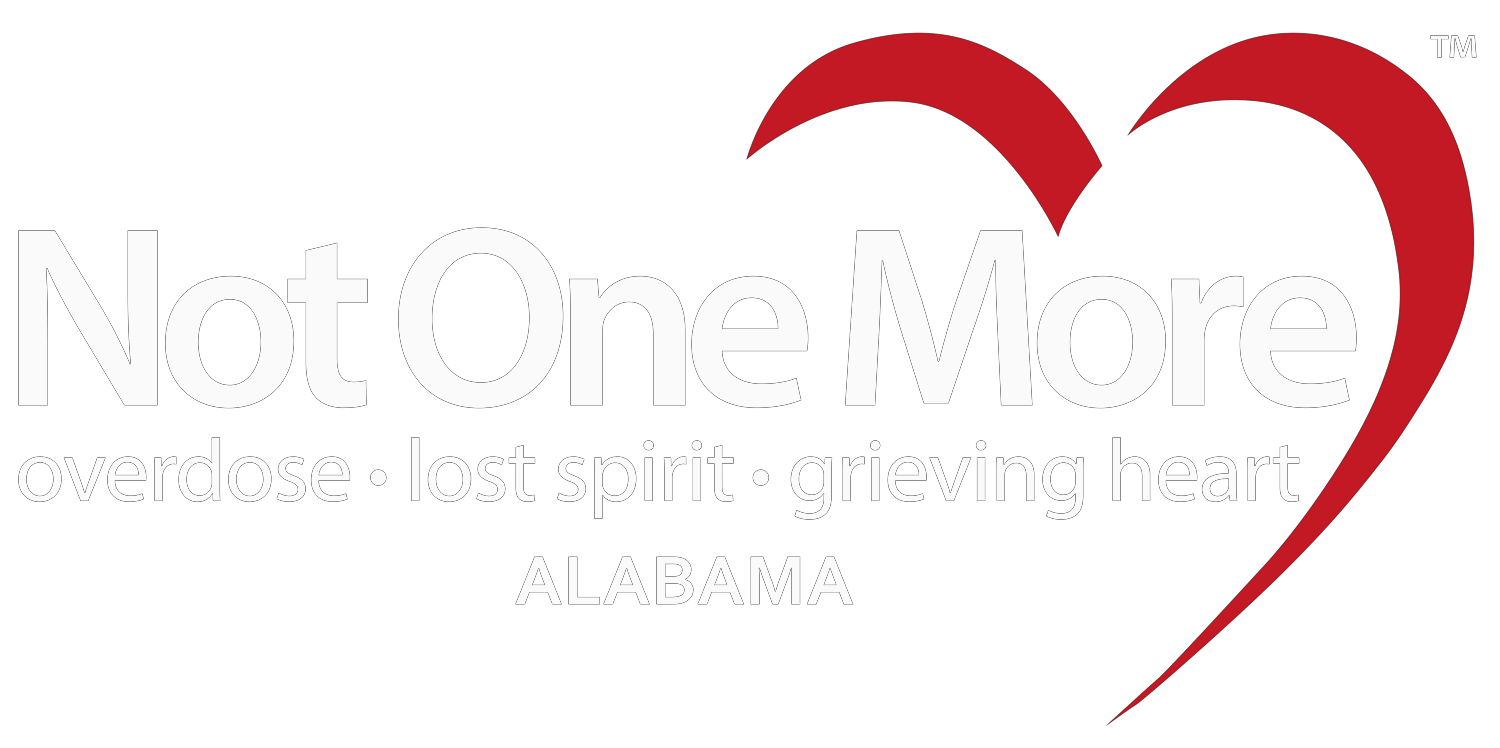

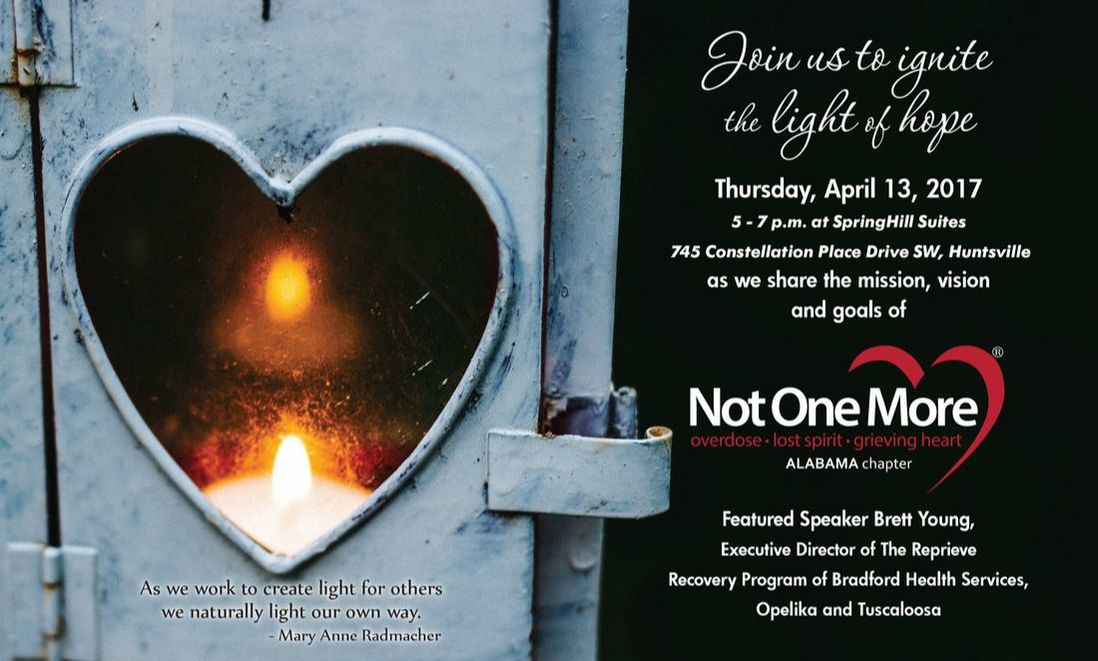

 RSS Feed
RSS Feed
